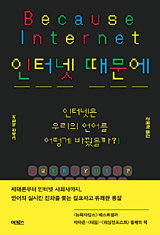Loose but broad bond that created memes
Loose but broad bond that created memes
Posted June. 25, 2022 07:26,
Updated June. 25, 2022 07:26

Languages have evolved at an exponential speed over the past 30 years since the Internet became visible to the people in the 1990s. The author, who has been working on online communications and Internet languages, says that the more people contact the outside, rather than people they are close to, the bigger the change in language. The Internet allows people to make more contacts with various people without geographical barriers than in any other place.
The author introduces diverse examples of internet language and analyzes the context of the phenomenon. Memes, amusing items such as a video, image or expression that is spread widely on the Internet, are being created or restructured online every day. A famous cartoon scene with the line “I won’t go over the details” is often used in numerous contexts on online posts or social media chats. If you look up the word, “lolcat” in the search box, so many photos and humorous text pieces related to cats will pop up that you may never be able to tell which one is the original.
There have been many trials to dramatize the original content in various versions, like memes, since long ago. Even “the Iliad,” a tale of the Trojan War by Homer in the 8th century B.C. started from oral literature. Today’s memes can easily be created in multiple versions by anyone through a meme generator online. Easily accessible and extendable properties of the Internet are drawing broad methods and trends of communication. “For individuals, sharing a meme is a way of saying that ‘I am part of this culture on the Internet and if you don’t understand what I am saying, then you are not in this world,’” added the author.
In the analog era, emotions or facial expressions could only be expressed through written letters on paper, not through videos or drawings. In today’s Internet era, drawings can be shared easily like letters through emojis. The easy typing functions of the Internet enable us to go beyond the limits of expression and it keeps evolving going forward.
On the Internet, the term “doggo” is seen more often than “puppy.” Although some voice concerns that the words used online will destroy the original language, the author highlights that it is a natural thing, saying, “Language is an ultimate form of participatory democracy.”
Seong-Taek Jeong neone@donga.com






